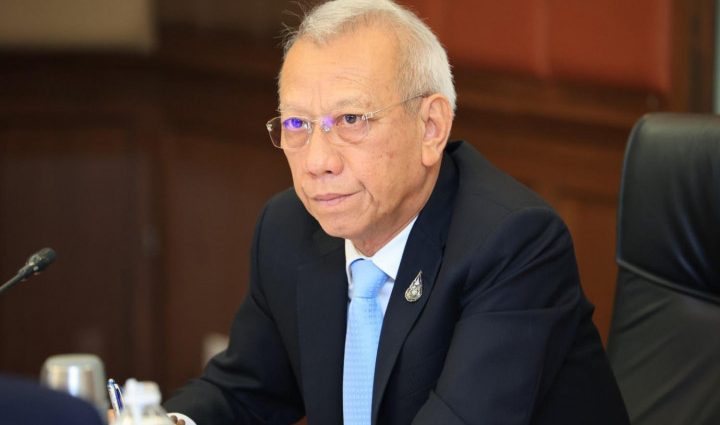New board calls for urgent changes
PUBLISHED : 6 Mar 2024 at 04:00

The Social Security Fund (SSF) could collapse in the next 30-40 years, the Labour Ministry has warned.
On Monday, the newly formed Social Security Board (SSB) led by Sustarum Thammaboosadee, an academic from Thammasat University, met with Labour Ministry officials to exchange ideas and push for a more effective social security policy.
Labour Minister Phiphat Ratchakitprakarn said that the Social Security Fund could go bankrupt in the next 30-40 years if nothing changes.
Mr Phiphat said the SSB may need to raise the fund collection ceiling from 15,000 baht to 20,000 baht and raise the maximum age of employees who contribute to the fund from 55 to 60.
He also suggested that the board raise the ceiling for low-risk asset investments from 60% to 75%.
Meanwhile, higher-risk assets to be invested must have an investment grade of BBB and above.
Mr Phiphat said the Social Security Fund has so far accumulated an estimated 200 billion baht, collecting around 70 billion baht per year.
“When the fund reaches its peak, which is estimated to be in the near future, the SSF graph might rapidly drop and fall in a “V” shape. So, planning in advance is necessary,” he said.
Last year, the SSF made a 59-billion-baht profit from 2.34 trillion baht in investments, he added.
He said investment must be boosted from 2.4% to 5% to increase revenue to 120 billion baht.
“The SSF’s new investment projects must not generate a profit of less than 5% or at least 4% during this and next year,” he said.
Depositing in foreign banks also holds an exchange rate risk, he added.
He also urged the new board to discuss what privileges it wants to add for fund members — company employees under Section 33, former employees under Section 39, or independent workers under Section 40.
Meanwhile, the country’s first-elected SSB has pledged transparency in the Social Security Fund’s administration, including promoting live broadcasts of meetings and cutting costs.
SSB spokeswoman Ketnakorn Pojanavorapong said that all meetings of the SSF committee must be broadcast, and the public should be allowed to access information about previous meetings.
She also pointed to what she said was a flaw in the social security law drafted by the Prayut government, saying it was proposed when the SSF was supervised by a selected panel. “We, as the first-elected social security committee, hope this will be the start of change that will see a better quality of life for all people,” she said.

